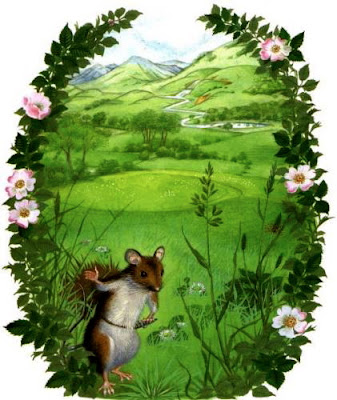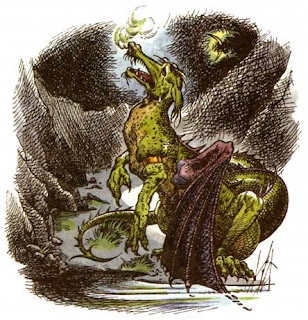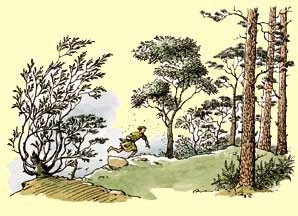Here are a series of studies I wrote about the book of Phillipians
Welcome, Worship, Word and Witness - Through the Book of Phillipians in 4 Easy Studies
Aim: the aim of these studies is to work through the book of Phillipians, giving praise to God and using the Bible to inspire our worship and witness. Each session will contain a time of welcome, a time of worship and a time of Bible Study.
Welcome: try to have the group arrive nice and early, good coffee and good biscuits can do wonders! Be sensitive and try to ensure that all members of the group are at least spoken to in the days leading up to the meeting. They may not be able to make it but they should feel that they are a part of the group at all times.
Worship: this is twofold, there should be praise for God and a time of prayer. Spend some time either playing worship songs and singing along or use already recorded songs and sing along to them. Music should lead us into a closeness with God that will transform our time with Him. At the end of the session, before we go out we should try to sing/listen to one of the songs from the earlier worship.
Word: there is a section of scripture to read each week Each one comes with questions that can be discussed or the discussion can dissect the Word in any way the Spirit leads.
Witness: each session comes with a challenge to try and complete in the weeks between the studies.
Session One: The Good News and the Good Life
Welcome: spend some time simply chatting and discussing what has happened during the last week. Have some good refreshments in a comfortable place. Conversations should never be forced but try to discuss the following: 1 thing to be thankful for in the last week, 1 thing to look forward to in the next week, 1 thing that has made us feel bad in the last week. Spend at least half an hour doing this, its vital that we come to worship the Lord in a mood of relaxation and comfort.
Worship:
Suggested song list:
Anthem of the Free
Blessed be your name
Seeing and singing
The Heart of Worship
All of these are from M Redman
Final Worship: Blessed be your name
Prayer time - if people have a list of things they would like to have prayer for that is wonderful, otherwise a time of open prayer will be wonderful. Use chapter 1 v 6 as a focus for prayer.
Word:
Read Philippians 1
1: Is there something that makes you happy every time you think of it? What is it? Why does it make you happy?
2: What does verse 6 mean? How does it effect you?
3: Read verses 9-11: how does knowledge and insight help love to develop? How does it result in discernment and purity?
4: Philippians is one of the most cheerful of all of Paul’s Letters. He is, however, in prison falsely accused. Yet he still advances the gospel. Would we? Why/Why not?
5: Why might some people preach the gospel out of spite and envy? Have we got any examples?
6: is Paul suggesting that people can be led to Christ through false preaching?
7: Paul cannot seem to decide between living and serving Christ or dying and being with Him. Are they both positives for us?
8: What is Paul’s ultimate motivation for living and dying? Is it what we would choose?
Witness: Here is a challenge to be tried during the next week: we all have people who are special to us and have a special place in our heart. Choose one (possibly a non-Christian) and tell them they are special, tell them what your hopes are for them and how you are praying for them.
Final Prayer: The Lord’s Prayer
Session 2: The Light of the World and How to light it up
Welcome: start with a discussion of the challenge from last session. How did it go? What was it like? What has been good this week? What has been difficult? What would you like to achieve in your relationship with God this week?
Worship:
The Greatest Day in History
Name above all names
Jesus Saves
Living for your Glory
All by Tim Hughes
Final Worship: Living for your glory
Prayer time: focus on chapter 2 verse 10. Bow your knees to Jesus and pray to Him. Pray to the God who became human and who knows exactly what its like to be you.
Word: Read chapter 2
1: What does it mean to be ‘like minded, of one spirit and purpose?
2: Who is more important than ourselves? What would happen if we truly cared for them as much as we care for ourselves?
3: If we were like Jesus is described here, what would happen to our interests and wants and needs?
4: How did Jesus become like us? What does this mean to you?
5: What does Paul mean in verse 12?
6: Do we always do things without grumbling or arguing? (v14) Why should we? Why don’t we?
7: How are Timothy and Epaphroditus good examples for us to follow? Who in our church are we looking up to?
Witness: This week, consider being a light in the world. The focus is to stop the grumbling and be a servant. Find one person (more if you wish) whom you can serve in some way this week. Do it without grumbling and do it in a way that Jesus would have done.
Final Prayer: The Grace (2 Cor 13:14)
Session 3: Being the best and winning the race
Welcome: This week try to talk about the times we have been closest to God. Where were we? What were we doing? Who were we with? What makes us feel thankful?
Worship
The wonder of the Cross
Yesterday, Today and Forever
Everlasting Arms
Everyone under the sun
Final Worship: The Wonder of the Cross
All by Vicky Beeching
Prayer time: Focus on verse 8 ‘Nothing is as wonderful as knowing Christ Jesus my Lord. I have given up everything else and count it all as rubbish. All I want is Christ’ CEV. Pray to this wonderful Jesus, the Jesus who had nothing to make him special but was and is the most special person in all of history.
Word: Read Philippians 3
1: What dogs does Paul refer to?
2: What does it mean to put no confidence in the flesh? Can we give examples?
3: Why does Paul consider religious righteousness ‘rubbish’? What does this say about us? What rubbish do we need to put aside?
4: How do we get the true righteousness Paul talks about?
5: Paul is in prison so what is he straining towards?
6: In what ways should we follow the example of Paul? Who else can we follow as an example?
7: Read verses 18-19, is Paul referring to people inside or outside of the church?
8: How will Christ transform our bodies?
Witness: This week put aside one thing that you rely on. Give up something that gives you comfort and do without it for one day. See how it affects you.
Final Prayer: Read through John 17: 20-26
Session 4: Thanks, Thanks and More Thanks
Welcome: Have a meal, the Bible is full of meals, we in the church don’t seem to have them any more. Share food together and enjoy each other’s company.
Worship:
In Christ Alone
Be Thou my Vision
I The Lord of Sea and Sky
Thine Be the Glory
Final Worship: In Christ Alone
Prayer: focus on chapter 4 verses 6-8, focus on what is familiar to us in Christ, what is true, right, holy and proper. Pray to the God who cares for us.
Word: Read Phillipians Chapter 4
1: Why does Paul tell the readers to rejoice?
2: The people of the letter are suffering, how are verses 5-7 a model for prayer in suffering? Is Paul telling them to thank God before or after He has answered their prayers?
3: What does the last part of verse 7 mean?
4: How does Verse 8 help us? Do we think of the good things when we are in difficulty?
5: How would learning to be content in everything change our lives and the lives of those around us?
6 How does what Paul says about giving and ministry support differ from what we often hear today?
Witness: Try to share the message of verse 8 with someone who is having difficulties this week. Listen to them talk, share their thoughts and then talk through what has helped you through difficult times in the past.
Final Prayer: Read through Phillipians 4: 19&20


























